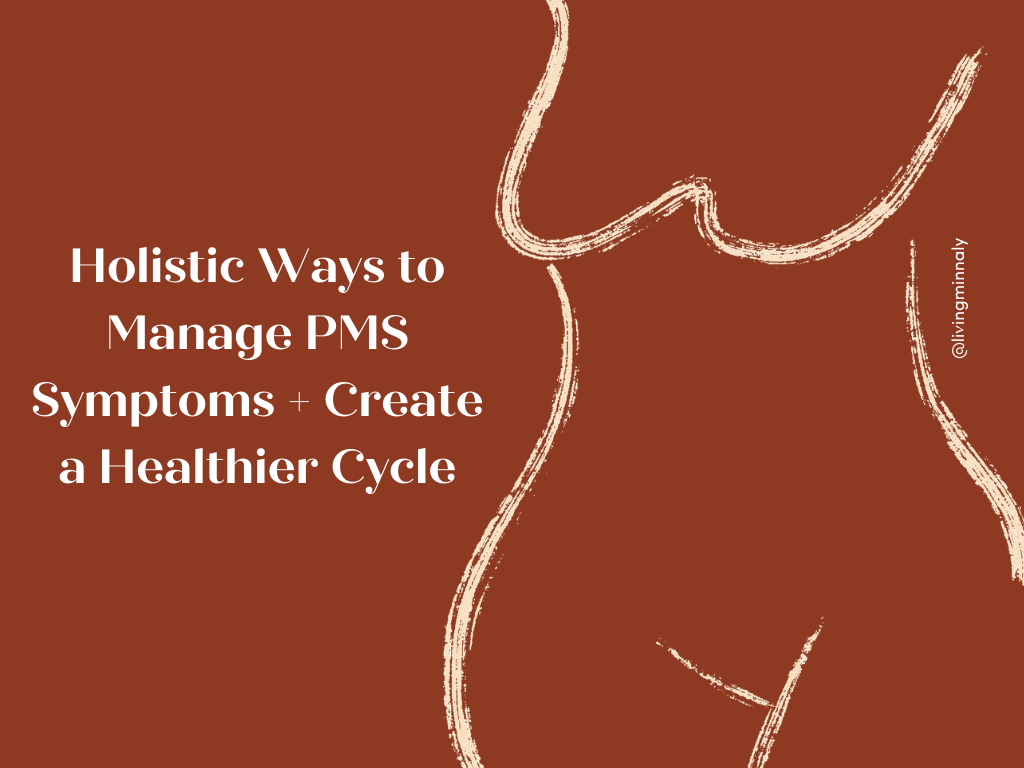4 Ways to Improve Your Sleep Quality + Sleep Hygiene
In the ladder of priorities for our health, people tend to assume that nutrition and working out are at the top. What if I told you that quality sleep is THE most impactful wellness practice you can prioritize?
Sleep impacts everything from your hormones (the endocrine system, which affects your energy, mood, stress, sex drive, skin health), cognitive function, digestion, mental health, your recovery from workouts, longevity… the list goes on. I like to think of sleep as the factory reset + repair of my body at night: it’s when your body gets to make repairs and the needed recalibration of your body’s functions and organs after what we put our bodies through every day (even good stuff, like working out!).
The problem is, is that the majority of people struggle with sleep in some way— whether it’s lack of sleep, poor quality sleep, bad sleep habits, or sleep disorders.
Especially during the pandemic, when chronic anxiety has increased considerably for everyone and our lifestyles have taken a dramatic turn (less socialization, likely less activity, being home all day), sleep has become not only more challenging, but also more important!
What is sleep hygiene?
Sleep hygiene simply means good sleep habits. A lot of us participate in certain habits (ahem screens in bed) that we rationally know doesn’t exactly help our sleep quality… but we still do it, because it’s a habit; perhaps even a habit that provides comfort (or revenge procrastination is common when you work demanding hours). Whether you’re having trouble falling asleep, staying asleep, or waking up feeling rested, working on your sleep hygiene is hugely helpful.
Cleaning up our sleep hygiene can pay off in some huge benefits (and make us no longer feel like we need to lean on those comforting habits!), so I wanted to share some effective tips I’ve gathered over the years as a trainer and nutrition coach from sleep experts and other health expert colleagues.
4 Ways to Improve Your Sleep Quality + Sleep Hygiene
*As with ANY lifestyle changes do not try to tackle ALL these habit changes at once—focus on improving one thing, then when it feels like less of an conscious effort to do it every day, incorporate another change.*
1. Eliminate screen time in bed (+ reduce it before bed)
Most everyone knows this is something we SHOULD do, but do you know why?
The blue light from our electronics interferes with our production of melatonin (a natural hormone that helps us feel ready for sleep) and increases feelings of alertness that (obviously) are counterintuitive to sleep. This also disrupts our natural circadian rhythm (which we’ll dive more into soon). These interferences not only affect you FALLING asleep, but also harms your ability to reach and stay in slow-wave and REM (rapid-eye-movement) sleep— 2 very crucial stages of sleep that impact our cognitive functions. This goes for television too, not just phones! Falling asleep to a TV is a habit some people grew up with, so it’s a tough one to break, but one step at a time is key.
Besides the physical impact that pre-bed screentime has on our circadian rhythm, it also usually tends to get our minds racing before bed— the opposite of what we want for restful sleep.
ACTIONABLE HABITS:
Plug your phone charger somewhere inaccessible from your bed (in another room is even better!), so you’re not scrolling in bed.
If you’re a chronic screentime person in bed, try first setting a timer and limit your usage to a little less; then a little less; and a little less; until you can finally go phone-free.
If you have a nighttime “routine,” try checking your phone one last time before kicking off the routine. Then plug in your phone and say goodbye to it for the night!
2. Create a separated sleep sanctuary
Especially now that so many people are working from home, this is more important (and perhaps more challenging with limited space if you live in a city apartment) than ever!
We humans are creatures of habit— our minds like to make associations. If we work on our beds or in our spaces meant for sleep, our minds associate “wakefulness” with those areas, making it harder to wind-down at night when it’s actually time for sleep.
ACTIONABLE HABITS:
Do not work on or from your bed.
If you need to work in the bedroom because of limited space, create a clear distinction between your bed / sleep space, and a special designated work area— a room divider is great too if possible for you!
It’s also super helpful to spruce up your bed to make it a special place— one that is reserved only for sleep (or physical intimacy). Nice sheets make a huge difference in how much we love our bed—we love Parachute for cooling linen sheets + Brooklinen for warm heathered cashmere.
3. Keep a consistent schedule + circadian rhythm
Our bodies have a natural wake cycle— a circadian rhythm that is in balance helps support wakefulness during the day and then help encourage drowsiness when it’s time to rest at night. Many lifestyle factors can disrupt this rhythm, and make it hard for our bodies to know when it’s time for lights out. Children have bedtimes to facilitate proper rest, and honestly, adults should too!
Regulating your circadian rhythm is the best way to set yourself up for success when it comes to consistent sleep hygiene and great sleep.
ACTIONABLE HABITS:
Identify a realistic, consistent sleep schedule you can stick to— if you’re far off from that now, start by inching your way towards your goal bedtime + wake times by 30 minute increments, building up to your ideal schedule.
Things that help regulate your circadian rhythm:
Consistent sleep schedule (wake + sleep at consistent times).
Avoid napping.
Daily exercise (but avoiding exercise 3-4 hours before bed).
Light exposure (like sunlight) during the daytime— or a light lamp if you live in areas with less natural sunlight (especially during winter!).
Avoid blue light close to sleep.
Avoid stimulants like caffeine after morning time.
Avoid high-carb meals or lots of sugar several hours before your bedtime.
4. Establish a nighttime routine / rituals.
While an elaborate routine full of skincare, meditation, and sleepy tea is all good and well, you definitely don’t need something elaborate in order to have a solid nighttime routine.
Just like I mentioned earlier, we humans are habit-oriented creatures, and having a consistent routine that leads up to your bedtime that you do every night helps signal to your brain that it’s time to slow down. Mine has definitely evolved over the years, but currently, I: start by fluffing the pillows on the couch, filling up our kettle for coffee the next morning, filling up our water filter, clearing dishes, brushing my teeth and doing my simple skincare routine, taking my CBD, plugging my phone in, then I usually change pajamas and lotion up my hands and feet before I crawl into bed.
ACTIONABLE HABITS:
Identify what you usually do before bedtime, and make it a routine you look forward to— it helps to incorporate something special, like a nice face serum you spend an extra minute rubbing into your face.
Something I HIGHLY recommend is including some simple action that includes a specific, calming scent— one that you ONLY use before bed, no other time of the day. Whether it’s turning on an essential oil diffuser, rubbing a special lotion on your hands/feet, or spraying something on your pillow, associating a specific, calming smell with sleep triggers a Pavlovian-like reaction. I have a hand lotion that I love and only use right before bed— that way, when I smell it, my brain instantly is like, “okay, lights out!”
Circling back to screen-time, it’s great to mark the start of your nighttime routine with plugging your phone in to charge and bidding it adieu for the night!
Some additional tips:
If you wake up in the middle of the night to go to the bathroom often, you’re likely drinking too much water too close to bed. Try to hydrate earlier and decrease your water intake as you approach your bedtime.
Personally, CBD has helped both Justin and I so much when it comes to helping us feel more chilled out for bedtime; especially on nights when we are both working into the evening a bit, it can be hard to shift from an “on” state of mind to “off.” CBD has helped with that shift by the relaxing effect it has, and it’s been consistently a part of our nighttime rituals— here’s our favorite.


































